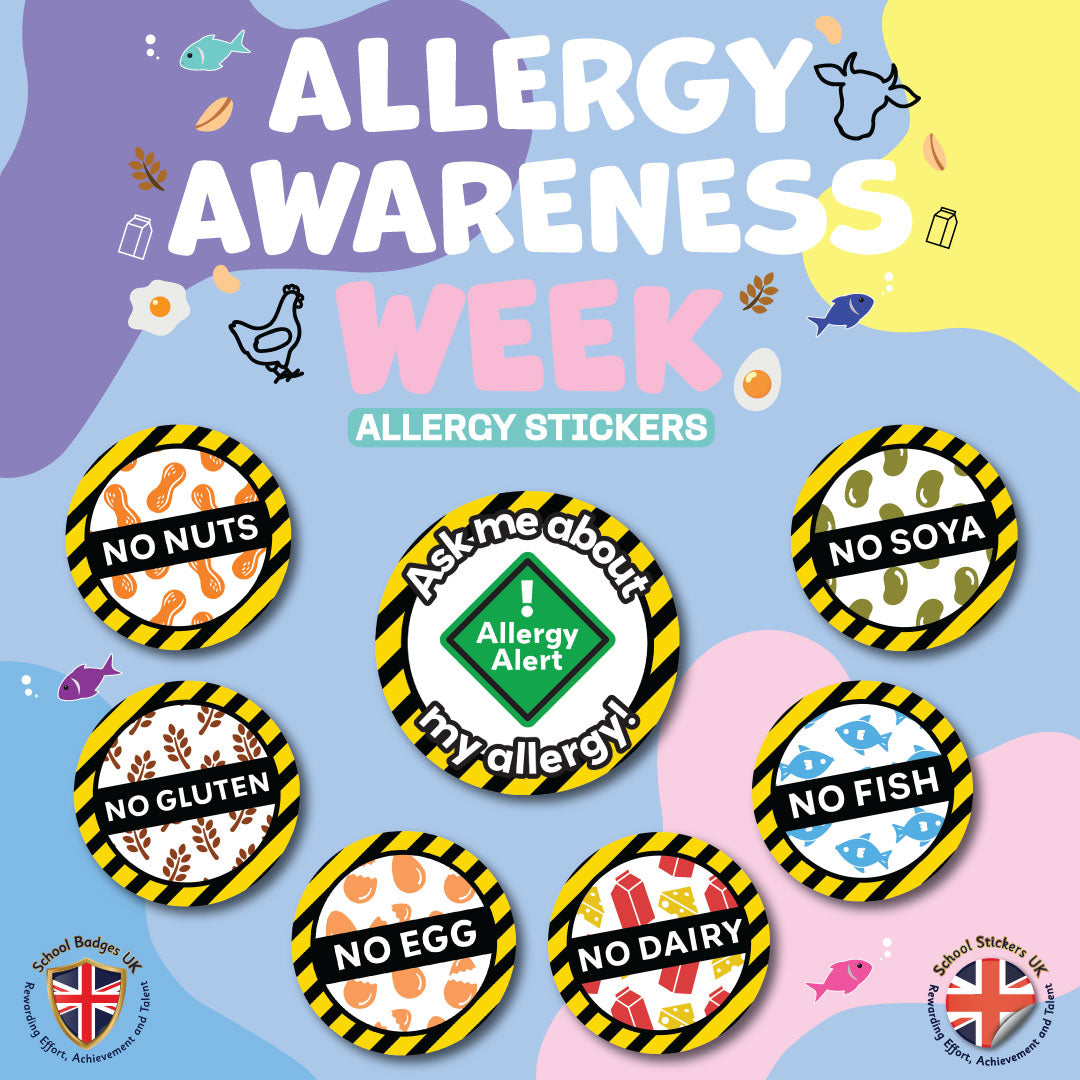Products offered by School Badges UK:
"Ask Me About My Allergy" Stickers: These stickers empower students with allergies to openly communicate their dietary restrictions to peers and teachers. By wearing these stickers, students invite dialogue and foster understanding among their peers, creating a supportive environment.
No Dairy, No Nuts, No Fish, No Egg, No Gluten, and No Soya Stickers: Each of these stickers represents a specific dietary restriction commonly associated with allergies. Placed on lunchboxes, water bottles, or personal belongings, these stickers serve as a visible reminder to others to avoid allergens that could pose a risk to allergic individuals.
By incorporating these stickers into the school environment, educators can reinforce allergy awareness and promote a culture of inclusivity and empathy. Additionally, schools can organise educational workshops, assemblies, and training sessions to raise awareness about allergies and teach students how to respond in case of an emergency.
In addition to serving as personal identifiers for students with allergies, School Badges UK's range of stickers can also be utilised in various other contexts within school environments, showcasing their multi-purpose functionality. For instance, these stickers can be employed in school canteens where food items are packaged and labelled with specific allergens. By affixing the appropriate stickers on food packaging, canteen staff can easily identify and segregate items containing allergens, minimising the risk of cross-contamination. Moreover, these stickers can be utilised during school events, field trips, and extracurricular activities to ensure that allergic individuals have access to safe food options.
Furthermore, allergy awareness extends beyond the school gates. Parents, caregivers, and the wider community play a vital role in supporting children with allergies. By encouraging collaboration between schools and families, we can create a network of support that prioritises the well-being of allergic individuals.
Conclusion
Allergy awareness within schools is not just a matter of precaution; it's a moral imperative. By recognising and educating others about allergies, schools can create a safer and more inclusive environment where every child feels valued and protected. Let's use Allergy Awareness Week as an opportunity to reaffirm our commitment to the well-being of all students!























